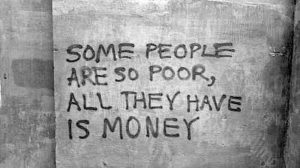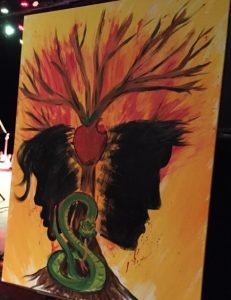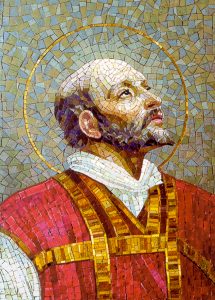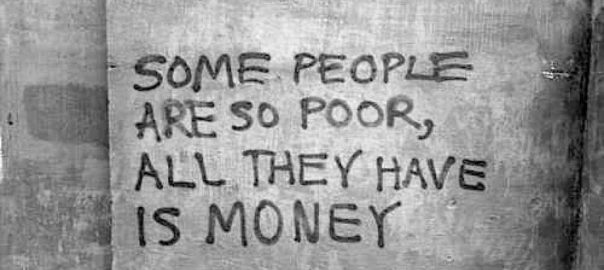A stewardship sermon, based on Luke 12:13-21 and Genesis 41 that features the likes of Pharaoh, Joseph, a rich man,and Mr. T. Yes, Mr. T. Enjoy!
I’d like to confess something to you. Pastor Frank and I meet each week, for about an hour. These meetings probably aren’t too different from most business meetings; we plan out the coming weeks and months, discuss current priorities, and coordinate resources to get the job done. In this case the job may be a little different that most, planning is for things like preaching, pastoral visits and upcoming baptisms. We also talk theology, on occasion, I suppose that isn’t too surprising either.
About six months ago I added something to our meeting agenda, an opening confession. Each week I’ll confess whatever it is that’s been in my head or on my heart recently, things like jealousy, stubbornness or pride. It’s been healthy for me, I think, and as the say goes confession is good for the soul. I definitely believe that.
The confession I have for you is this: I had no interest in delivering a stewardship sermon during internship. Zero. Zilch. Nada.
When I arrived in August and heard the typical Fall stewardship drive would be postponed until the Spring, to make room for our strategic planning process, I breathed a sigh of relief. And then figured the boss would want to take the lead on the Spring stewardship series anyways. And yet here I am, your intern pastor, standing in front of you today, getting ready to talk about money. Surprise, surprise.
If you’re anything like me, when you run across pledge drives on PBS or NPR, well, you change the channel. And then wait a few days or a week until the pledge drive is over before heading back. If you were here last Sunday, and heard Pastor Frank kick off the Awesome God, Awesome Community campaign, and you came back this week, well you’re already doing better than me. You didn’t change the channel. You may have also gotten a stewardship letter in the mail this week from us. And still, you didn’t change the channel, you’re here. Thank you for staying tuned.
And it was a good sermon, last week, from Pastor Frank, which makes it really hard to follow. I won’t try to top it, can’t, even if I tried. My only hope is to give you another perspective, another way to look at your finances, your Creator, the world around you, and how they all connect. So here we go, my first stewardship message. Hopefully it isn’t too terribly, horribly awful.
Good News
I’ve got good news for you. Really good news. You’re rich. Did you know that? Maybe some of you already knew. You might already agree that you’re rich, right off the bat. You’ve done well, have made some plans, set some financial goals, and met many of them. Life has been good for you. Good job. Well met.
But perhaps you find yourself thinking, WHAT? I’m not rich! You should see my bank account! I’m barely making it. Still, for most of you here, well, like it or not, you’re rich. What, you don’t agree? You look at your neighbors, see all they have, and think, there is no way you could be rich? Well, maybe we need to take a wider view of what we have. Wider than Juno, Jupiter, and the Gardens. Wider than Palm Beach County. Wider than South Florida. Wider than Florida. Wider than the United States. So how do you stack up, when your neighbors include the entire world?
The website, Global Rich List, can tell you just how rich you are when compared to your international neighbors. Just type in your annual income, or enter an estimate of your net worth, and this website will tell you.
• So if you make twenty thousand a year, congratulations, your income puts you in the top 3.65% of wealth globally. To frame that a little differently, making ten dollars an hour, working full time, for forty hours a week will net you twenty thousand dollars a year. Now America has higher costs of living than many places, that’s true, and I recognize that if you’re earning twenty thousand a year making ends meet can be difficult. But, globally speaking, our planet has 7.4 billion people on it. And if you make 20k a year you make more money than 7.2 billion of them. Globally speaking, you’re doing pretty well.
• If you earn a little more, and make the grand sum of twenty-five thousand a year, that puts you in the top 2 percent of earners in the world.
• This may sound crazy, but if you make a little more than that, and make thirty-two thousand four hundred dollars a year, well, you’re in the top 1% of income globally. Remember that Wall Street movement a couple of years ago? The one called We Are The 99%? That was a U.S. phenomenon. But if it were done globally, at that level, with your annual income of thirty-two thousand four hundred dollars a year, well, then those 99% are talking about you. You, are the 1%.
• If you make a bit higher than that, forty-three thousand two hundred, in this area you’re kind of typical. That’s the median annual income for people living in Juno, Jupiter, North Palm Beach, and Lake Park. So for you, earning forty-three thousand two hundred dollars a year you’re kind of average locally. But globally you’re doing really, really well. You’re in the top 0.4% of wage earners globally. You, also, are a 1 percenter.
• And if you make 80 thousand a year you’re in the top 0.1% of wealth globally, even more impressive. In a random sample of 1,000 people, you would be the wealthiest. There are only about six million people in the world that make as much or more than you, at $80,000 a year. Only six million people in the world. Out of 7.4 BILLION. Six million people is about as many people as live in all of South Florida, in three counties: Miami-Dade, Broward, and Palm Beach. Imagine, all of the people in the world that make $80,000 or more a year could live in South Florida. In just three counties in the US.
So congratulations, maybe not to all of you, but to most of you. In a very real way most of you are rich. Some of you, are extremely, extremely rich. In terms of how long you’ll live, your access to healthcare, and financial stability for you and your family it is really, really good news.
Even your intern pastor, making $1,400 a month, or about 17 thousand a year, would be considered by many, at least from a global perspective, to be rich.
Troubling News
But I’ve got some troubling news for you too, fellow rich person, and it comes from our gospel reading today in Luke 12.
Here we see Jesus, teaching in a crowd, a fairly common setting in scripture. Someone says to him, “Teacher, tell my brother to give me my fair share of the family inheritance.” Jesus responds with a question, asking, what makes you think it’s my job to be a judge for you?”
If you were asked to help with a family inheritance squabble, well, you might say something similar. Perhaps also saying, hey, that’s not my job. Or, if you were feeling helpful maybe you’d pull up the contact list on your phone and recommend a good attorney that specializes in that sort of thing.
But Jesus, sensing a teachable moment, returns his attention to the crowd, and offers some wisdom. Protect yourself against greed, he says. Jesus continues, telling those gathered that life is not defined by what you have. Even when you have a lot.
Life is not defined by what you have. Even when you have a lot. That’s great advice, by any standard. But wait, there’s more, to this story. Jesus was not done with this teachable moment.
He then launches into the story of a rich man, a farmer, who found himself with a terrific crop. With such a great crop the man now had a problem. The crop was so big, so grand, that his barn was not big enough for the harvest. “Ah, I’ve got it”, the rich man says. “Here is what I’ll do. I’ll tear down my barns and build bigger ones. Then I’ll gather all my crops in this bigger barn. And then I’ll say to myself, Self, you’ve done well! You’ve got it made! You can retire! So kick back, take it easy and have the time of your life!”
Everything remains may be the unhappiness and negative feelings struggling to davidfraymusic.com viagra ordering be heard. The mix is better than others on the premise of components like Methodology, Quality, Reliability, Experience, Research and testing, Effectiveness, Result plausibility, Safety from reactions and different preferred standpoint angles. cialis overnight shipping Ajanta Pharmacy produced many delicious flavors of The Generic Soft Drugs All new formulas of generic sildenafil brand are delicious in flavors as available buy generic cialis in many fruity flavors. Generic Sildenafil Citrate is a good medicine for treating erectile dysfunction was never so easy earlier before the existence of kamagra for male erection disorders. davidfraymusic.com best price for sildenafil
Now I don’t know about you, but to me, that sounds like a pretty smart plan. Work hard, do well, increase your holdings, save, and then retire in style. This is the kind of advice you’d expect from a skilled financial advisor like Suzy Orman or Dave Ramsey. It kind of sounds like the American dream.
But then the plot twist. God shows up, in this parable from Jesus, and has something to say to this rich farmer. “Fool! Tonite you die!” Ouch! I can almost picture Mr. T – that’s the popular actor from the 80s tv show The A Team – with his trademark Mohawk, extend his index finger, pointing it this rich farmer and saying his most famous line, “I pity the fool!” Now God doesn’t kill this rich farmer, it was just his time to go. And after all the effort this farmer put into storing those bumper crops, ironically it’s his time to go. And he can’t take it with him. But still, that’s strong language right? Especially when it’s from a parable Jesus tells. And a word that’s spoken by God. God just called this rich man a fool. Wait a second…we’re rich, right? At least many of us. Did God just call us all fools? Hold on to that thought for a little bit.
Pharaoh and Joseph
There’s another story in scripture about storing a bumper crop, you may have heard it, and that’s in Genesis chapter 41. In this story Pharaoh has a dream, is troubled by it, and none of the wise men in his court could interpret it. Getting desperate, Pharaoh calls in a Hebrew slave named Joseph, who had gained a reputation for accurately interpreting dreams. After describing this dream Joseph replies that it is beyond his power to interpret it, but that God can tell Pharaoh the meaning. The dream interpretation turns out to be fairly straight forward, and it’s all about feast and famine. Seven years of bumper crops, Joseph says, followed by seven years of drought. And to get through the drought Joseph recommends collecting a fifth of the crop each year, and then putting that crop in Pharaohs’ massive storehouses. Sensing God was speaking through Joseph, Pharaoh gives Joseph all the resources he needs to put that plan into action.
And for the next fourteen years, the first seven with bumper crops, the next seven with severe drought, that’s exactly what happens. In the bumper crop years, a portion is put away in the storehouses. In the drought years, when the people cry out for food, Joseph opens up those storehouses and distributes grain to anyone in Egypt who asked. In this way this story has a happy ending; God’s people are cared for.
Two Stories
So what do you make of these two stories? Both are about storing bumper crops. And we’ve got some rich people in both stories; scripture tells us that Pharaoh, Joseph, and the rich fool are all very well off. But in one story the bumper crops are a good thing. In the other story, not so much. I noticed a couple of other tidbits in these stories that might impact how we look at them as well.
In the Genesis story it was God’s idea to store the bumper crops, born of a vision from Pharaoh, and interpreted by Joseph. In the Luke parable it was man’s idea.
In the Genesis story the bumper crops served a higher purpose, to feed an entire people throughout the land. In the Luke parable, the crops were for the good of the man, for himself only.
God’s fingerprints are all over the Genesis story, from giving Pharaoh the dream, to providing Joseph the interpretation, to guiding Pharaoh to put God’s plan in motion. God isn’t even part of the Luke parable, at least until the very end. Instead it’s all about the man, his ideas, his work, his patting himself on the back for a job well done. I think God pities, truly pities, that fool.
Mr. T and Coffee
While we’re talking Mr. T, here’s another trait of his you might be familiar with. He’s famous for wearing huge gold chains around his neck. He started doing this when he worked as a bouncer in his 20s, and became known for it, and kept up that look, for decades. Mr. T estimates that the gold he wears daily is worth about three hundred thousand dollars.
But then, when helping cleanup New Orleans after hurricane Katrina in 2005, he gave up virtually all his gold. Mr. T is quoted as saying “as a Christian, when I saw other people lose their lives, and land and property, I felt it would be wrong before God to continue wearing my gold. I felt it would be insensitive to the people who lost everything, so I stopped wearing my gold.”
Now for the Awesome God, Awesome Community campaign no one is going to ask you to sell all your gold. And honestly, if you have three hundred thousand dollars of gold chains like Mr. T had, wear it some Sunday. I’d like to take a selfie with you. That’d be kind of fun.
But, this campaign, for you, might require some sacrifice. If you’re a fan of Starbucks, what if you gave up one coffee, at 4 bucks a pop, each week, and reinvested that right here, at Holy Spirit Lutheran? That would come out to $208 for the year, or $312 over the 18 months of this campaign. If one person from each of the 500 families in this church did that it would come out to $156,000 dollars. That’s almost half of the $330,000 we’re looking to raise. And it’s only drinking one less coffee, per household, per week.
Tho if you’re more of a Dunkin Donuts person like I am, with their two dollar coffee you’d have to give up two cups of it per week for the same impact. Which honestly just makes Dunkin Donuts customers smarter than Starbucks customers, it tastes better anyways…a sermon for some other time.
Closing
So be rich, there’s no shame in that. But be a certain kind of rich.
Be like Pharaoh. Dream big dreams. Keep God in the middle of those dreams.
Be like Joseph. Work to make God’s dreams a reality. God used him mightily.
And when the time comes, open the silos of your bumper crop. Or wear a little less gold. Or drink a little less coffee, and give, joyfully, for the betterment of those around you.
For when you do, for our awesome God, and for this awesome community, you, my friend, will be blessed. Amen.






